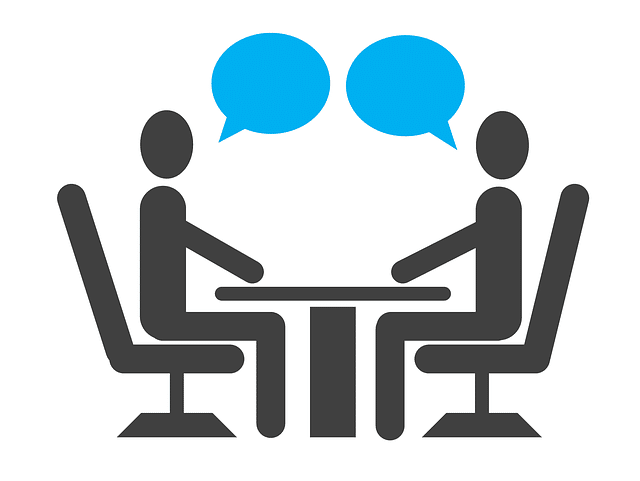
Don’t like to talk about yourself? So take advantage of the opportunity that this question provides you, because to answer it effectively, the trick is not to elaborate too much, in order to return as quickly as possible to positive questions. So, unless the interviewer says they want to know two or three of your weaknesses, mention only one. Here are some what is your greatest weakness answer samples.
.
Why is this question asked? In this way, the employer checks whether you know your weaknesses and disadvantages and try to work on them. There are no perfect employees, the recruiter knows this well, but it’s important that the candidate knows what elements he wants to improve.
.
How do I respond?
.
Do you know how candidates answer this question most often in an interview?
.
The result of the interview could well play to this question, if you do not highlight your qualities well. First, you have to choose a real weakness, but not too serious or connected too directly to the position to be filled. After all, the interviewer’s office is not a confession box, so you don’t have to point out your worst weakness, for example, the fact that you have trouble complying with the boss’s instructions when they go against your recommendations.
.
You can start by saying that “the features you’re constantly developing are…”. Try to show that these are not your flaws, but the challenges you take.
.
The ideal is to mention a technical point, for example, written English or the advanced functions of a software. Because if they represent real weaknesses, technical problems are easier to correct than those related to personality. For example, it is much easier to learn how to create dynamic crossovers using an electronic spreadsheet than to learn how to manage stress.
.
Even if you mention only one of your weaknesses, prepare four. Two technical and two related to your personality, always neither too serious nor too related to the position, in case the interviewer is very specific in his requests. Tip: Skills presented as “assets” in the job offer can be used as answers if you do not have them, because if these assets are of interest to the employer, they will not usually be considered at the time of the final choice, otherwise they would have been included in the “requirements”.
.
Many respond that they are perfectionists. But responding by giving examples of something that is perhaps really a strength shows that you have not listened to the question and can give the impression that you are arrogant. Select something that you’ve been actively working on changing. Please give concrete examples of how you have tried to overcome a certain weakness.
.
Throughout your answer, you should see to let a positive atmosphere hover and take the opportunity to slip at least one of your strengths, at the end of the answer ideally.
.
What is your greatest weakness answer samples – Sample responses
.
“A weakness… Generally speaking, I’m pretty comfortable with it, and I work with most desktop software. However, to answer your question, I have a bit of a problem with database software. I learned Access in college four years ago, and I sometimes had to enter data in my last job, but I still have to say that it is a weakness because I never made a database myself. On the other hand, if I had the chance to do it in my next job, I am sure I would get there pretty quickly because I understand computer logic and I learn very easily”.
.
If you say “my weakness is that I don’t have much experience working in the ABC field” then you will say this is an opportunity for you to learn and improve your knowledge.
.
Talk about how you’ve overcome a weakness, for example, you can say that “a year ago I was very timid and very afraid of communication, this had caused many obstacles for me in work as well as in life. And I was determined to overcome this weakness by setting goals for each day to talk to at least three people a day and to make friends with at least one new friend, I have also read many books and take courses in the arts of communication to practice. By now, my weaknesses has been overcome and I am more confident now.”
.
That, for example. As long as you speak carefully and clearly about the steps you have done to overcome the weakness. This will make the employer have a more positive view of you. Ultimately it doesn’t matter what strengths or weaknesses you have, it is important that your response is sincere and convincing.
.
A defect far removed from the skills required for the position you are applying for is still the best solution. For example, an accountant may admit a lack of assurance in oral expression which is more embarrassing for a salesperson. A salesman may admit a lack of concentration which is more annoying for an accountant!
.
Other examples of weaknesses to be adapted to the coveted position –
.
Written English, punctuation, fingering (typing speed), software of any kind, shyness, tendency to take things too seriously, difficulty in imposing themselves in meetings, difficulty working with non-professional people, difficulty in delegating, ignorance of any industry.
.
You must also show that you are capable of taking on challenges, your weaknesses sublimating your strengths. By asking you this classic question, the recruiter also tests your level of maturity and your knowledge of yourself.
.
While you certainly want to link your strengths to the position and company for which you are applying, avoid this approach with your weaknesses. You don’t want them to associate a weakness with their business or what they’re looking for. For example, if a salesperson’s job description mentions oral communication skills, don’t say you don’t like to talk in public.
.
There are many other flaws but we do not advise them. Indeed some are very sharp and abrupt and whatever explanation you might give to mitigate its scope, the recruiter would have a hard time retaining a positive image of you. So forget the typical ones like anxious, authoritarian, selfish, manic, indifferent, intolerant, shy, disorganized, aggressive, talkative, stressed, slow, lazy, careerist, proud etc.. You are not at the psychoanalyst but at a job interview. This is a special exercise that doesn’t require getting naked! You are not here to hide your shortcomings, nor are you there to devalue yourself either.
.
Interview Questions & Answers
.
